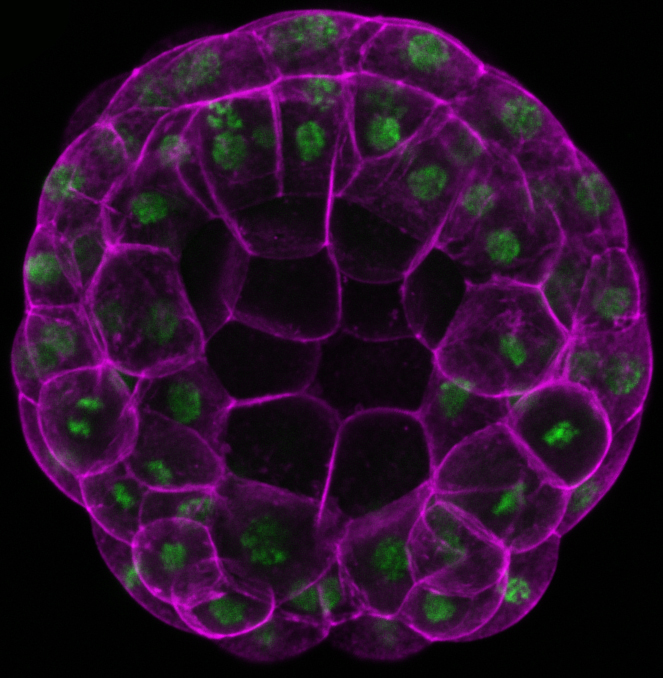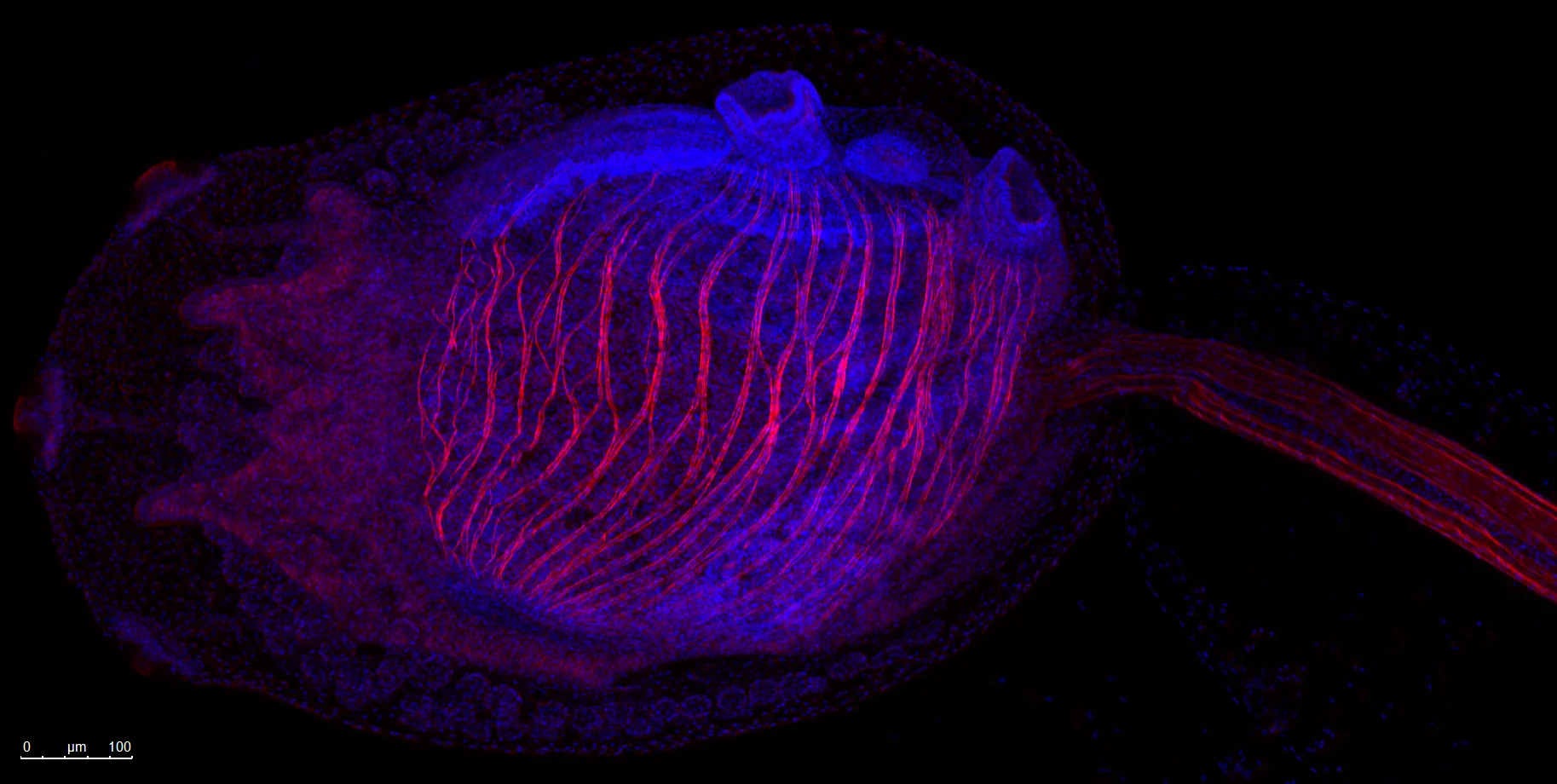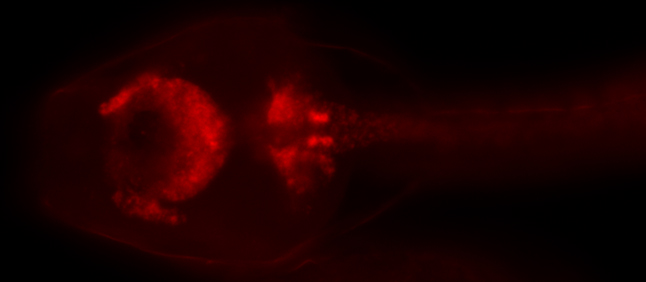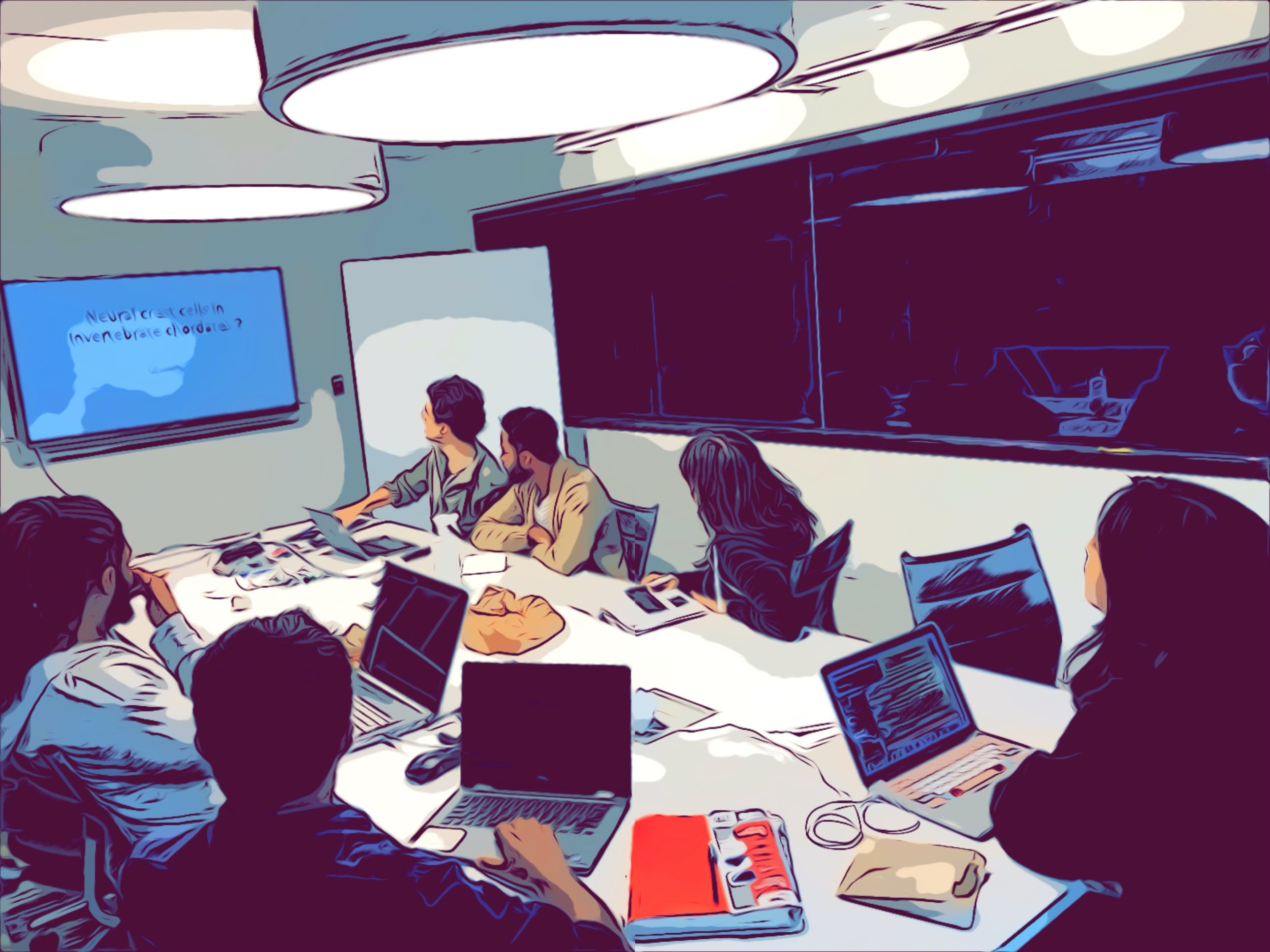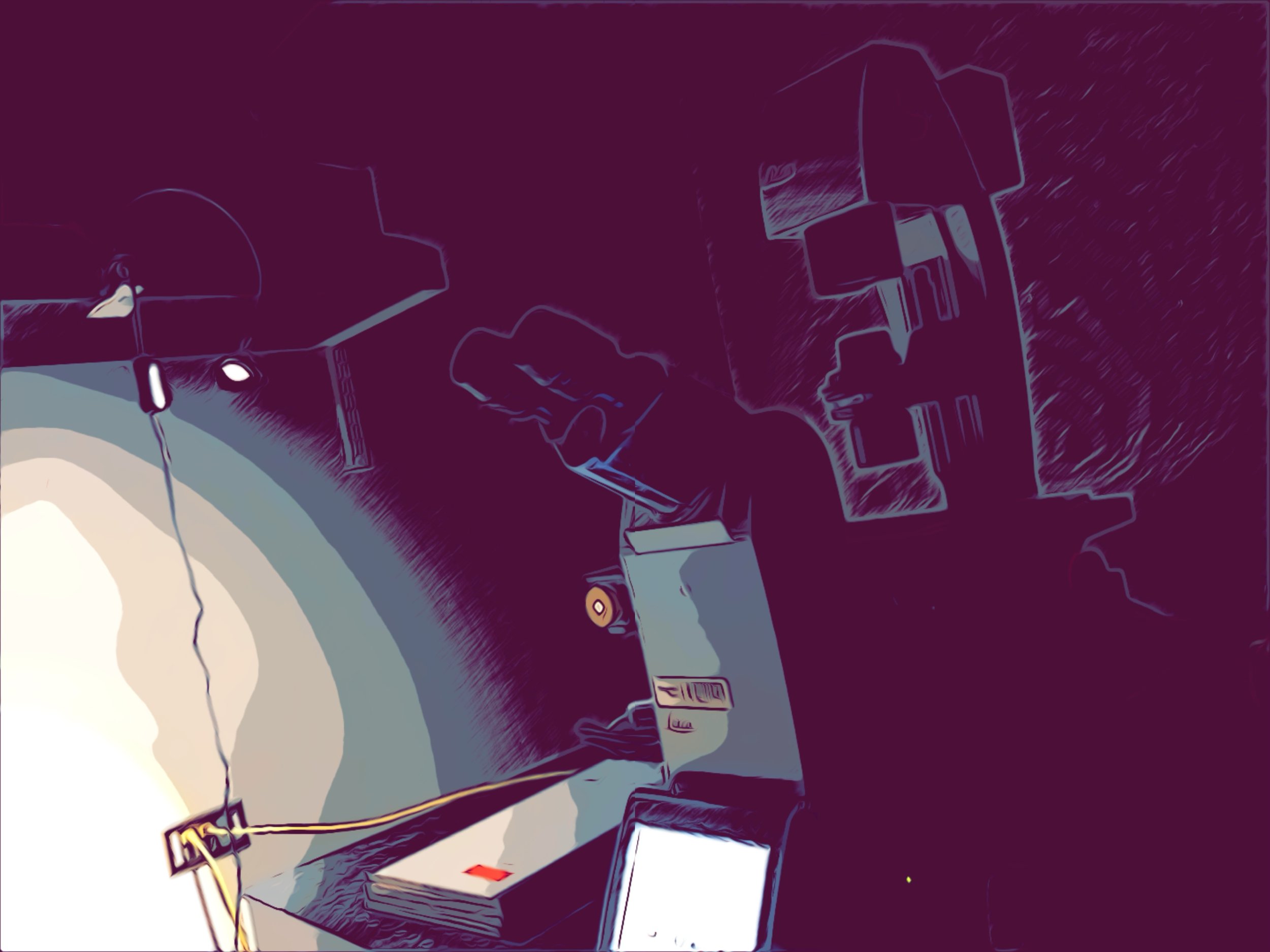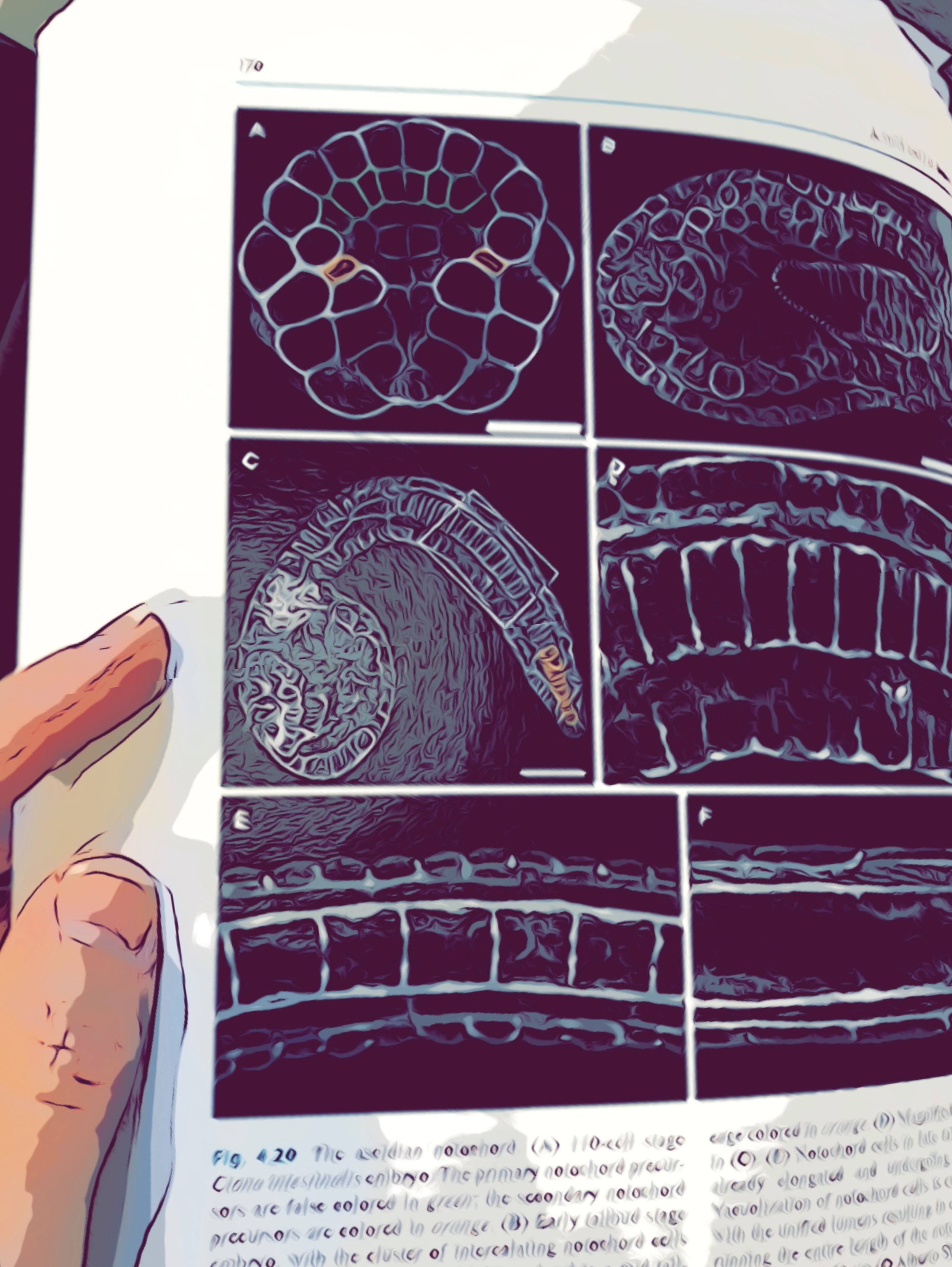
How does your body, including your brain, form? Our lab seeks to answer how animal behavior is set up by the collective behaviors of individual cells, over the entire course of development. More specifically, we investigate how gene activity can instruct how each developing cell will move around, change shape, and connect to other cells. Our interest lies primarily in the cells that animals use for sensing or for movement, like sensory cells, neurons, and muscles.
To do this, we study the simple neuromuscular systems of our closest invertebrate relatives, the tunicates. Tunicates, like us, belong to the Chordate phylum, but have very simple embryos and compact genomes. The laboratory model tunicate Ciona has only 231 neurons and is the only chordate with a fully mapped "connectome". We take advantage of this simplicity to probe molecular mechanisms that may underlie human development.
Contact us if you'd like to tune in to tunicates! We are especially dedicated to promoting equity of historically excluded minoritized groups in science and academia.
Georgia Institute of Technology, School of Biological Sciences, Atlanta, GA - USA
External funding:


